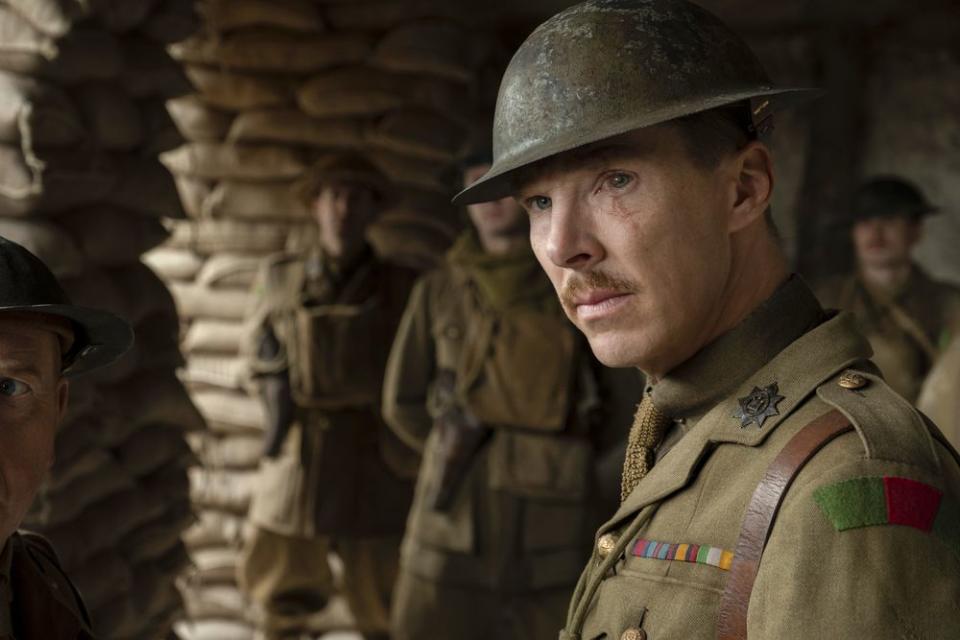Sam Mendes' breathtaking 1917 is a new kind of WWI movie: Review
If movies aim to show us that war is hell, they can also often make it feel like a highlight reel, all blood and glory and noble sacrifice. Sam Mendes doesn’t have a particularly new tale to tell in 1917 — it’s essentially an impossible-mission drama, like Dunkirk, Saving Private Ryan, and countless films before it — but he has found a remarkable new way to tell it: through a single camera’s seemingly unbroken gaze.
Shooting the action in what appears to be one continuous, nearly two-hour take could feel like merely a filmmaker’s trick, or just a very clever way to drive actors and production designers out of their minds. Instead, legendary cinematographer Roger Deakins (No Country for Old Men, Fargo, Blade Runner 2049) effectively drops the viewer into the center of the story and compels them to stay there, fully immersed in every muddy step, hunger pang, and rifle click.
Two soldiers, one sharp and stoic (George McKay), one genial and apple-cheeked (Game of Thrones‘ Dean Charles Chapman), aren’t quite sure why they’ve been selected by the brusque General Erinmore (Colin Firth) to deliver an urgent message to the front — except that one of them has a brother there, about to engage in a battle that Erinmore informs them is actually a trap set by the Germans; if England’s troops aren’t rerouted within the next six hours and attack as planned, they’ll be annihilated.

As the pair set off in a sort of cautious rush, it becomes clear why they call it No Man’s Land: Whole villages stand eerily empty, ransacked or boobytrapped; a frothy pail of milk rests, still fresh, in an abandoned barn; the bloated bodies of dead soldiers bob gently against a riverbank like khaki-colored logs. For long stretches the two young infantrymen are entirely alone out there, and then suddenly, viciously not.
Famous faces (Firth, Richard Madden, Benedict Cumberbatch) come and go; Andrew Scott (now and probably forever known as Fleabag‘s Hot Priest) has a great, acerbic term as a nihilistic lieutenant with a seemingly bottomless flask. But the film belongs to Chapman and more than anyone, MacKay, a 27-year-old Londoner with the long bones and baleful eyes of a porcelain saint or a lost Culkin brother. His Lance Corporal Schofield isn’t just a surrogate Everyman; he’s hope and fear personified, and you couldn’t look away if you wanted to. A–
(1917 comes to theaters Dec. 25)
Related content:

